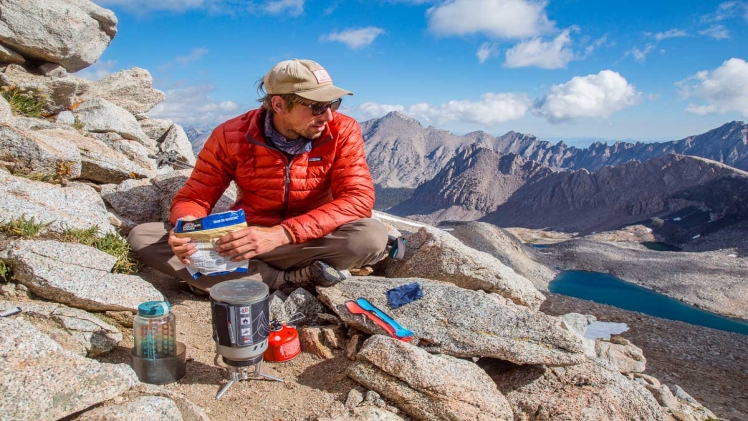A high-fat, low glycemic index food before hiking should help regulate insulin levels better. Furthermore, it also helps increase endurance since fats are broken down instead of sugars. Thus, providing extended energy for hiking as opposed to the spike and crash experienced after eating high sugar foods.
Midway or towards the end of the hike, when you feel your energy levels depleting slowly, have a high carbohydrate snack. This will be light on your stomach and shall give an instant energy boost to help you complete the task. After the hike is over, a nutritious well-balanced meal with high protein in addition to fats, carbohydrates, minerals, vitamins, and fiber should help restore your energy levels and muscle recovery.
Dry Fruits, Nuts, Dates
These food groups may seem tiny but they are packed with energy. Thus, making them a convenient and nutritious snack on the go. Only a handful of nuts, dry fruits, and dates provide instant energy that can make your hike a piece of cake. Dry fruits and dates are rich in carbohydrates. While nuts contain more fat.
Fresh Fruits, Fruit Juices, and Smoothies
Bananas and mangoes are the most energy-packed high-calorie fruits. Although the former might be easier to carry and eat during a hike. Fruits usually contain simple sugars such as fructose and can readily be absorbed in the bloodstream, and can be quickly transported to cells for the catabolism for energy. If you don’t like carrying fruits or are worried about their spoilage then prepare smoothies and fresh fruit juice snacks to enjoy on your hike.
Nutrition Bars
Nutrition bars are hugely popular and everyone’s favorite. Pickiness of your choice, with dried fruits, dates, or nuts. Low-Glycemic Index energy bars containing legumes are helpful in boosting endurance. While nutritionally balanced nutrient bars may not be ideal for hiking since they’re used as a meal replacement or for weight loss. High carbohydrate energy bars are the best snacking options during a hike.
Marshmallows
No camping or hiking trip is complete without the classic marshmallows. Set up a bonfire and enjoy toasted marshmallows rich in carbohydrates that give instant energy to complete your hike.
Tuna, Turkey, Ham, Chicken, Chocolate, Cheese, Peanut Butter or Jam Sandwiches
Sandwiches are a rich source of starch; a complex carbohydrate that provides instant energy. Add sugary spreads like jam, jelly, peanut butter, or chocolate to it for an energy-packed, high-carbohydrate snack. Savory options like tuna, turkey, ham, chicken, and cheese make a snack rich in all the macronutrients. The best part is that these can be prepared from home and are not easily ruined during a long hiking trip.
Olives
Olives make a great salty and delectable snack. Only 100 grams of olives provide 115 calories. They are a high-fat diet though. Hence, olives aren’t a great source of instant energy. But they do have a smaller proportion of carbohydrates. Moreover, the fat in olives is monounsaturated which means it shall reduce inflammation that usually follows any strenuous activity. And olives are rich in the ultimate antioxidant, also known as Vitamin E. Other minerals include iron, calcium, copper, and sodium. Thus, making olives a great hiking snack in addition to a sugary one.
Cheese
Pick your favorite cheese from the endless choice of Parmesan, mozzarella, goat, cheddar, etc. It provides instant probiotics and the best part is that you don’t have to worry about it spoiling during a long hike. Have them with crackers or toasts for instant energy through a great mix of carbohydrates and fats. When eaten alone, cheese is a good source of fat and probiotics. Thus, the former option should be chosen instead.
Water
Finally, do not forget to stay hydrated – especially if you’re hiking during hot weather. Try to consume at least half a liter of water every hour. Your body is constantly catabolizing fats to make up for the increased energy expenditure, and these processes require an extensive amount of water. Furthermore, the higher altitude you climb the more water your body will lose. This is due to the faster depletion of oxygen stores in your body due to the atmospheric pressure in addition to the increased energy consumption. Our body shall compensate by increasing the respiratory rate, subsequently increasing senseless water losses (through perspiration and expiration). Thus, having a giant thermos on your hiking trip is a must.

